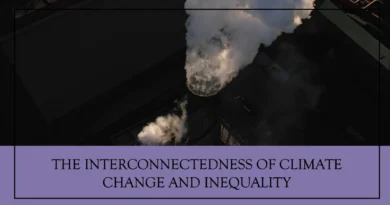Navigating Joe Biden’s Executive Order: Implications for U.S. Investors in China
In a rapidly evolving global economic landscape, the intersection of politics and finance often brings forth significant changes that impact investors and markets. One such development is President Joe Biden’s executive order aimed at restricting U.S. investments in China. This executive order, issued to protect national security interests, has raised questions and concerns among U.S. investors regarding its implications and scope. In this blog, we will delve into the details of this executive order, its potential consequences for U.S. investors, and the broader context of U.S.-China economic relations.
Key Milestones of Joe Biden’s Executive Order
| Date | Executive Order Details |
| Aug 9, 2023 | President Biden signs executive order |
| Aug 15, 2023 | Concerns arise regarding its impact on investments |
| Ongoing | Clarity sought by U.S. investors on the order’s specifics |
The Executive Order: Protecting National Security
President Joe Biden’s executive order, signed on August 9, 2023, seeks to achieve several key objectives. Its primary focus is to safeguard national security interests and prevent U.S. capital from inadvertently aiding China’s military and sensitive technology sectors. While the order is designed with national security in mind, it has left many investors seeking clarity on its implications.
Focus Areas of Joe Biden’s Executive Order
| Area of Concern | Key Details |
| National Security | Prevent U.S. capital from aiding China’s military interests |
| Sensitive Technology | Restrict investments in critical technology sectors |
| Economic Impact | Raise concerns about potential economic consequences |
Implications for U.S. Investors
1. Technology Sector Impact
One of the significant aspects of the executive order is its impact on investments in sensitive technology sectors. U.S. investors, particularly those with holdings in Chinese tech companies, are carefully assessing how these restrictions may affect their portfolios. This includes evaluating the potential limitations on new investments and the status of existing holdings.
2. Economic Uncertainty
The executive order has introduced an element of economic uncertainty. Investors are closely monitoring how this policy might influence broader economic relations between the United States and China. The potential consequences for trade, supply chains, and global markets remain topics of concern.
3. Clarity and Guidance
Amidst these concerns, U.S. investors are actively seeking clarity and guidance regarding the specifics of the executive order. They want to understand which sectors and companies are directly impacted, the extent of the restrictions, and the compliance measures they need to undertake.
Investor Considerations in Light of the Executive Order
| Investor Actions | Key Considerations |
| Portfolio Review | Assess holdings in Chinese tech and related sectors |
| Risk Mitigation | Diversify investments to mitigate potential risks |
| Expert Guidance | Consult financial experts for compliance guidance |
The Broader Context: U.S.-China Economic Relations
Understanding the executive order’s implications necessitates considering the broader context of U.S.-China economic relations. The United States and China maintain complex economic ties, with both nations being major players in the global economy.
While this executive order represents a significant development, it is part of a more extensive landscape of trade policies, tariffs, and sanctions that have shaped the U.S.-China economic relationship in recent years. Investors must navigate this intricate web of policies and regulations as they make financial decisions.
Conclusion
As U.S. investors grapple with the implications of Joe Biden’s executive order, one thing is clear: clarity and guidance are paramount. The executive order’s focus on national security and technology sectors underscores the need for careful consideration of investments in Chinese companies.
While concerns about potential economic consequences persist, investors can take proactive steps to assess and manage their portfolios. Diversification and expert guidance can play crucial roles in navigating this evolving landscape.
As the executive order’s impact becomes more defined and as U.S.-China economic relations continue to evolve, investors will remain vigilant, adapt their strategies, and seek the information necessary to make informed decisions in this ever-changing financial environment.
Disclaimer: This blog is intended for informational purposes only and does not constitute financial or investment advice. Please consult with a qualified financial advisor for personalized guidance.




